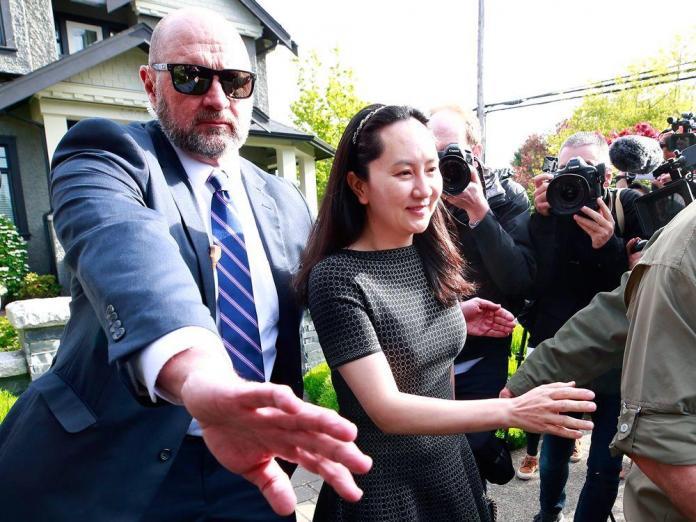
After three years of a trade war that ranged from simmering to boiling, a partial agreement was signed by officials of the Chinese and American delegations on January 15th. The so-called “phase one” trade deal covers a broad range of items, including health restrictions on imports and intellectual property, while also committing the Chinese to purchasing an extra $200 billion worth of American products and services by 2021. It would seem that the conclusion of this political-economic spat is at hand. However, one major obstacle still stands in the path to normalization: Huawei’s Chief Financial Officer (CFO), Meng Wanzhou.
Wanzhou was seized by Canadian authorities in Vancouver on December 1, 2018 and has been held in custody since that time. After spending the previous 14 months in, what seems like limbo, it now appears we are nearing something resembling the end of this saga.
An extradition hearing for Ms. Meng was held on January 20th and it took just eight days for the United States Department of Justice to announce they would, in fact, be bringing charges of fraud against her. Not only is Wanzhou a ranking member of the world’s largest telecommunications equipment maker in the world, but also the daughter of founder, Ren Zhengfei. In addition, Huawei is the largest private company in the People’s Republic of China.
As if the above were not damaging enough to the hopes that the trade war would soon reach its end, the European Union has through one of its institutions, the European Commission, recommended that a limit be put on “high-risk” supplies sales to the tech giant. As a result, Huawei will still be allowed to participate in the rollout of 5G technology in the EU, but this decision is directly at odds with the American position which blacklisted the company over its alleged links to Chinese espionage. The blacklisting of Huawei prohibits American companies from selling anything of value to it in the interests of national security.
Observers and experts have noted the correlation between the trade deal and Huawei, but the company’s influence is far from typical. Any type of negative escalation in Wanzhou’s case has the far-reaching potential to completely derail the negotiations process between the Americans and Chinese. Wanzhou’s father, Ren Zhengfei has already gone on record as expressing his pride that his daughter has become a bargaining chip in the geopolitical realities of the two countries. He even went so far as to liken it to a sort of honor that has been bestowed upon her.
The concept “face” in Chinese culture is one still deeply ingrained in the minds of the people there. Disputes can be had, but a boundary exists where once crossed, the loss of face can be so devastating as to further embroil adversaries and ratchet up any tension between them, possibly making any reproach untenable.
The years long trade war between the United States and China is one of the many tools in the American diplomatic tool bag to challenge the political, economic, and military rise of the world’s most populous nation. Deeply ingrained in the dispute is the allegation that Chinese government institutions frequently engage in espionage and the theft of intellectual property. Huawei is an indigenous Chinese company that has pioneered 5G technology and as such is a refutation of these allegations and a source of pride for not only the government, but the Chinese people.
It would be a shame if the American side continues to engage in what many see as “hostage diplomacy” and in doing so, abrogate the already delicate deal in place. Phase Two of the trade deal is even more important due to the outstanding $360 billion at stake.

